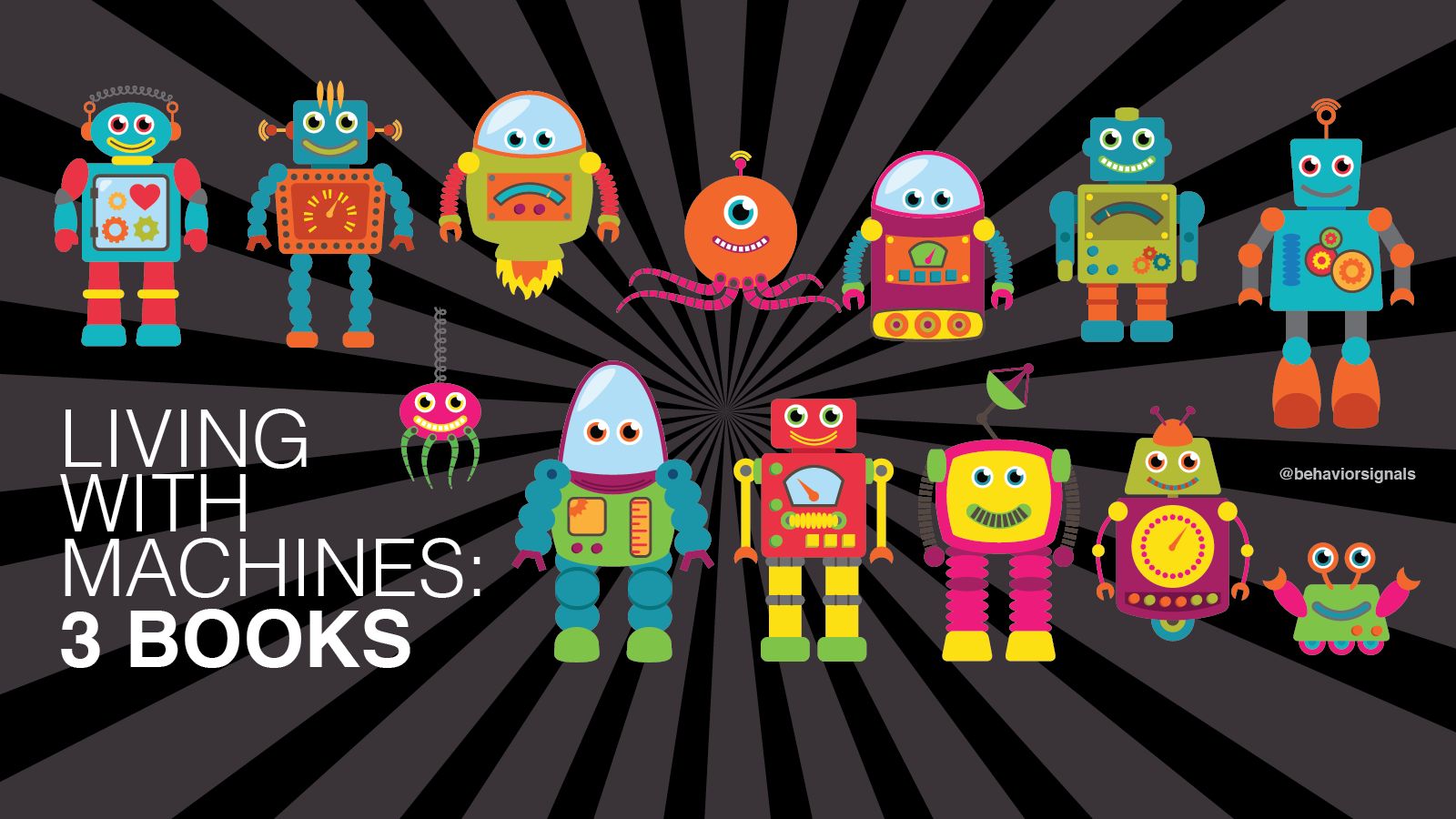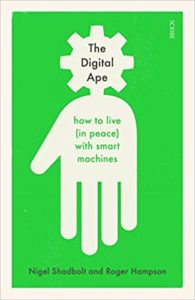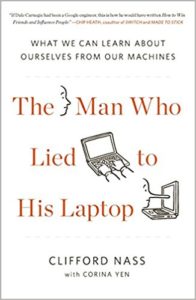
Living with Machines: 3 Books to Read
June is here, bringing in summer. What a better time to hit the outdoors and enjoy a good book discussing our living with machines and our relation with them? Digital virtual assistants are becoming ubiquitous, whether they come in the form of chatbots, mobile assistants (call me Siri), platform messengers (Duplex), assistive robots (TEMI) or speakers (Alexa), they’re changing our lives in ways we could only imagine in the past.
How easy will it be to live with intelligent machines? We’ve got a list of 3 significant books you should definitely read!
“Artificial intelligence will reach human levels by around 2029. Follow that out further to, say, 2045, we will have multiplied the intelligence, the human biological machine intelligence of our civilization a billion-fold”
― Ray Kurzweil
The Digital Ape: how to live (in peace) with smart machines
by Nigel Shadbolt (Author), Roger Hampson (Author)

The smart-machines revolution is reshaping our lives and our societies. We were using tools before we became Homo sapiens and will continue to control them. However, how we control everything from our private lives, our employment and politics will determine our collective future well-being. The Digital Ape talks of Augmented Intelligence (ours) rather than Artificial Intelligence (theirs). Notably, it argues that when it comes to our technological future we can retain control. However, how we exercise that control — in employment matters, in privacy matters, in political matters etc — is the essence of our collective future and well-being. Find the book here.
Wired for Speech: How Voice Activates and Advances the Human-computer Relationship
by Clifford Nass (Author), Scott Brave (Author)

Interfaces that talk and listen are populating computers, cars, call centers, and even home appliances and toys. The book argues that these voice interfaces invariably frustrate rather than help. In addition, the book focuses on that the fact that people are “voice-activated, set to respond to voice technologies as they respond to actual people and behave as in any social situation. By leveraging this powerful finding, voice interfaces can truly emerge as the next frontier for efficient, user-friendly technology. Find more information on the book here.
Man Who Lied to His Laptop, The : What We Can Learn About Ourselves from Our Machines
by Clifford Nass (Author), Corina Yen (Author)

Stanford professor Clifford Nass’ study of our interactions with computers has discovered a set of rules for effective human relationships. In particular, book authors propose that our brains cannot fundamentally distinguish between interacting with people and interacting with devices. They demonstrate that-although we might deny it-we treat computers and other devices like people. Using real experiments, this discussion of human interaction and its relation to technology provides an insight into an increasingly important part of life. Read more here.
If you would like to see more book suggestions how about heading over to our previous post on machine learning.
At Behavioral Signals, we strive to bring meaningful interactions, between humans and machines, by adding empathy to machines. We want it to feel like chatting with a friend or someone who really understands you and responds appropriately.


